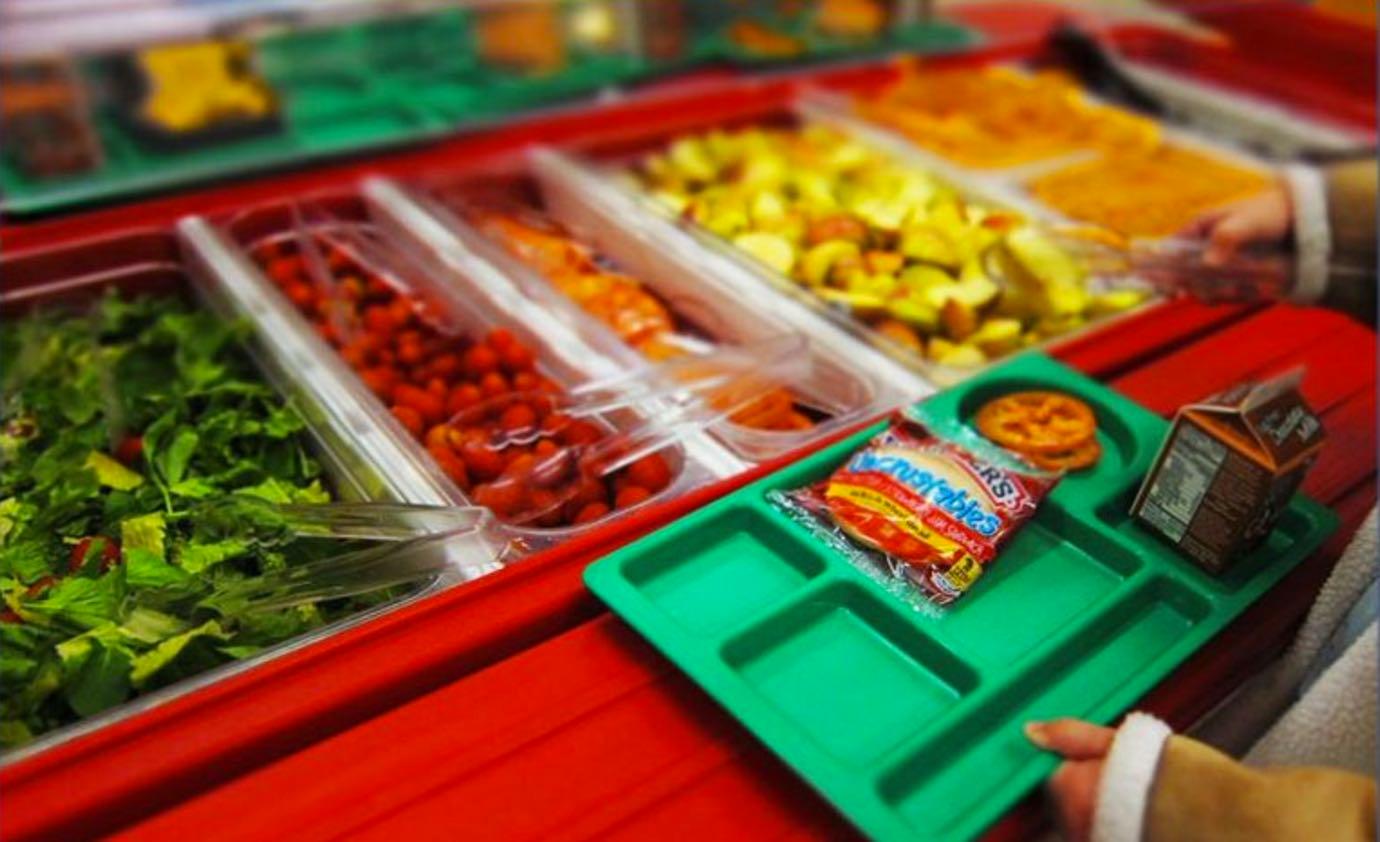Trump’s new school lunch plan allows for ‘dangerously high levels of sodium’
President Donald Trump is rolling back Obama-era changes to school lunch.
Nutritional standards in schools, which were established in the Obama era and championed by former first lady Michelle Obama, are now being relaxed under the Trump administration.
On Monday, the US Department of Agriculture announced that it “will provide greater flexibility in nutrition requirements for school meal programs” — which advocates say could lead to lower standards for milk, sodium and whole grains, among other things.
Margo Wootan, director of nutrition policy at the Center for Science in the Public Interest, is concerned about the plan, which the Trump administration is framing as a way to “make school lunches great again.”
“I couldn’t believe they were using that campaign tagline to describe rolling back school nutrition standards,” she says. “They’re actually proposing steps that are going to make school lunches more unhealthy, to roll back the tremendous amount of progress that schools have been making towards serving healthier food to kids.”
According to Wootan, the Trump administration’s new plan allows for “dangerously high levels of sodium” in school cafeteria lunches.
“Schools have been working to gradually reduce the amount of sodium over time,” she says. “They’ve done the first phase of sodium reduction, what [the Trump administration’s] doing is preventing the next level of sodium reduction from going into effect.”
Wootan isn’t as concerned about the changes to the provisions about sweetened milk because those products have already been in cafeterias for quite some time.
“It’s not like they’re adding chocolate milk into schools, and it doesn’t exist,” she says. “What they’re saying is, in addition to the schools being able to serve fat-free chocolate milk, they also can serve 1 percent chocolate milk.”
For the most part, Wootan says that American children like the new school lunches that were introduced during the Obama administration.
“Not every single kid — of course, kids complain about school lunch, they complained about school lunch when it was unhealthy,” she says. “[Studies show] that kids are actually eating more fruits and vegetables now than they did before these updated nutrition standards went into effect.”
Some advocates are concerned that these changes are a sign of things to come — that the Trump administration will roll back standards on fruits and vegetables, and allow for the use of vending machines that are filled with candies and salty snacks.
“It’s really discouraging that just in the first few days of his tenure, one of the first thing that the secretary of agriculture does is to roll back progress on the quality of school meals served to children,” says Wootan. “We hope that this is all they’re going to do around school food, but we will be ready and watching and working to defend the progress on healthy school meals.”
This story originally aired on The Takeaway.
